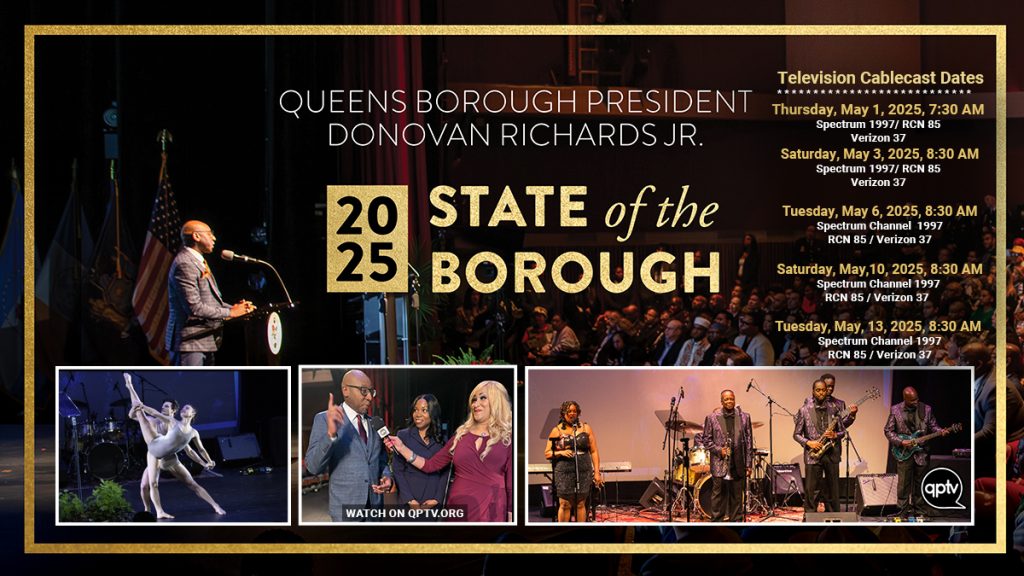Deputy Inspector Kevin Coleman discusses plans for community, uptick in crime
Although he doesn’t have a New York accent, NYPD Deputy Inspector Kevin Coleman is no stranger to the city—or the borough of Queens.
He first moved to Astoria from Rochester, NY in September 2001—just 10 days before 9/11—and now lives in Manhattan.
Coleman joined the NYPD exactly 19 years ago, and started his career at the 6th Precinct in Lower Manhattan.
He went on to work at the 25th Precinct in East Harlem, 43rd and 52nd Precincts in the Bronx, 10th Precinct in the west side of Manhattan, where he served as commanding officer, and the Patrol Borough Bronx before being transferred to the 104 three weeks ago.
The 104th Precinct serves the western section of Queens, containing the Ridgewood, Glendale, Middle Village, and Maspeth neighborhoods.
“I’m very excited to be here,” Coleman said. “Working-wise, this is my first time in Queens, as I was mainly a Manhattan and Bronx cop for my career. But I’m happy to be here at the 104 and in a new experience working in Queens.”
Coleman said he made the conscious decision to go to bed early the night before his first day, June 6, and he’s glad he did—as the fatal shooting at 1080 Wyckoff Avenue happened early that morning.
“My patrol sergeant called me, and I woke up to respond directly to the scene there. We had a fatality there; a man was shot in the head, which is a tragedy on its own,” he said.
“We had about four shooters that are pretty much linked to crews in Brooklyn, and even the Bronx, and they have an ongoing dispute,” he continued. “It’s horrible. We had a fatality, but it could have been worse there.”
Coleman said that the 104’s former commanding officer, Captain Louron Hall, has been very helpful for his transition into the new precinct.
Hall is now the Commanding Officer of the 109th Precinct in northeast Queens.
Similarly to Hall’s approach, Coleman aims to engage with the community as much as possible, by way of meeting with stakeholders and elected officials, attending local events, being active on social media, and being present at community meetings to hear people’s concerns.
“I like to talk with people,” Coleman said. “I have what I call an open door policy for my cops. I’ll talk to them, but also with people in the public by arranging meetings.”
Coleman attended his first 104th Precinct Community Council meeting last week, where he and other police officers from the precinct listened to community members’ concerns and provided them with crime statistics.
He shared that the precinct is up in almost all categories of crime, especially gun violence, as there have been seven shooting incidents year-to-date versus zero at this time last year. The Ridgewood section of the precinct is the area with the most violent crimes, as it borders the 83rd Precinct in Brooklyn.
“None of [the shootings] are connected, but I think it does illustrate that people are walking around with firearms, which is concerning,” Coleman said. “We want to make it very clear that this violence will not be tolerated here.”
He added that the 104th Precinct recovered a handful of guns in the past two weeks alone, and emphasized that any type of violent crime is a priority of the precinct, as well as other crimes such as scams, robberies, or grand theft auto.
As for interacting with the community, Coleman said that so far he feels supported by them, despite the widespread anti-police sentiments.
“Obviously, there are people that can have justified concerns about policing, and that goes for any profession. However, the thing that was really shocking to me during the ‘defund the police’ movement is this stigma to paint all cops, the entire profession, as bad people,” Coleman said.
“I know for a fact, being in the NYPD for 19 years, that there are so many good people who are here for the right reasons. They want to help communities, they want to help people, and they want to reduce crime,” he continued. “Because of the pandemic and the incidents that happened, such as the murder of George Floyd, I think people in general challenge authority more than they once did.”
Coleman reflected on a past experience in the Bronx, where he and his partner arrested an individual wanted for a crime.
During the arrest, the person turned to him and the other officer and said, “You guys are the bad guys now.”
“Although I don’t think that’s true, it certainly felt that way,” Coleman said. “And I think these things can be about perception, and where it becomes a problem is the bad guys out there that commit crimes, if they believe that they have this ability to challenge the police and that they feel like the public is on their side about that, that empowers them.”
Despite this, Coleman acknowledges that the majority of New York City actually supports the police, and feels that those who do not are in the minority.
“It’s almost like its own little world, here in these neighborhoods, which are right in the center of Queens and Brooklyn,” he said. “I like that this community is really closely knit and supportive—not just of the police, but for each other.”




